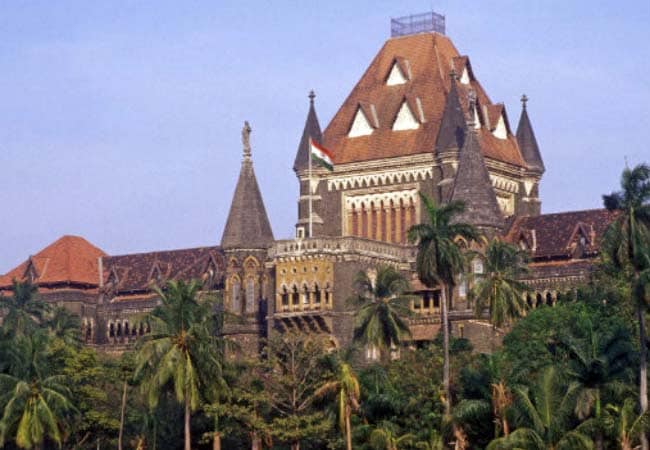Dismissing petition to sack three ministers: Maharashtra, the HC was hearing a plea against chief minister Devendra Fadnavis’ decision to induct 13 new ministers into his Cabinet on the eve of the Monsoon Session of the Assembly

The Bombay High Court has dismissed writ petitions challenging the ‘morally incorrect’ induction of Radhakrishna Vikhe Patil, Jaydatta Kshirsagar and Avinash Mahatekar in the Maharashtra State Cabinet of Ministers.
Radhakrishna Vikhe Patil, leader of Opposition in Maharashtra, quit Congress to join the ruling BJP-Shiv Sena alliance, while Jaydatta Kshirsagar (ex NCP Minister) declared his support for BJP from the Beed Lok Sabha constituency. Avinash Mahatekar had lost elections in 2014 on a Republican Party of India (RPI) ticket.
The petitions filed by Vijay Wadettiwar (MLA – Chandrapur) and Surinder Arora (President – Bharat Jan Adhaa Party) were heard by the Division bench of Justice SC Dharmadhikari and Justice GS Patel. They stated that these ministers being non-legislators were disqualified under the Constitution from holding a position of MLA or MLC.
The Court also observed that in the absence of the judgement by the Speaker on the alleged defection and disqualification of the ministers, it was not possible for the court to rule on it. The Court stated that if politicians were seen switching loyalties purely for political gains during the elections, it was the responsibility of the voters to teach these ‘defectors’ a lesson.
Submissions
On behalf of the petitioners, SB Talekar said that the Constitution never planned the induction of persons into the Cabinet or the Ministry who were not members of either House, and who could not continue in such ministerial berths for more than six months and who had no prospect of a re-election within six months.
He argued that the reason behind the purpose of these Consitutional Provisions was to ensure integrity in public administration and public affairs.
Talekar cited the example of Vikhe Patil who was the Opposition Leader and MLA for INC from the Shirdi constituency. He had secured a LS nomination by the BJP for his son from the Kopargaon constituency, thus making it clear that he desired to defect to the BJP.
Quoting the judgement of the Supreme Court in S R Chaudhuri v State of Punjab and Others and V R Kapoor v State of Tamil Nadu, he supported his arguments with articles 164 (4), 173, 191 (2) and the Tenth Schedule (Anti Defection Law) of the Indian Constitution.
Speaking on behalf of the State and Chief Minister Devendra Fadnavis, Senior Advocate VA Throrat said the Constitution could not be rewritten just by mere interpretation of certain articles. He also argued that there was no express bar or prohibition in inducting a non-legislator as a Minister only because the term of the House was coming to an end in less than six months.
Verdict
The bench took into account the apprehensions expressed by Advocate Talekar regarding this defection on the eve of elections.
Citing the apex court’s judgement in Manoj Narula v Union of India, Justice Dharmadhikari observed – “The judgment of the Hon’ble Mr Justice Madan B. Lokur, as His Lordship then was, shows us the path in holding that the Constitution cannot be interpreted in the manner suggested in that case as well as in the present case. We cannot re- write a Constitutional provision. In the garb of its interpretation it will not be possible to assume that there is something lacking or missing in the Constitution itself.”
Upon hearing the constituent assembly debates and relevant provisions, the Court dismissed the petitions. Yet, it asserted the importance of a democratic system and gave a word of advice to the voters. He urged the voters to take action against such Ministers as the majority of the power rested with the public. He was of the opinion that it is imperative for the citizens of the democratic country to raise their voice to get the rights they deserve.
“When we say ‘defections’, we are careful not to express any opinion on the facts and circumstances of the present case. However, it is understood by the common man as a switching of loyalties and shifting of one’s position frequently and for political gains.”
“It is abandoning a cause and embracing some other. That we are noticing such a trend in Maharashtra on the eve of the elections may be unfortunate. But that will not allow us to read into an Article something that is not there, and is wholly left out. Where political leaders and parties betray the constitutional trust, then such matters are best left to the judgment of the people. It is eventually the voters who have to take responsibility.”
“The world over, democracy comes at a price; and achieving it as a form of governance has required a monumental sacrifice. When we take pride in Indian democracy, we should note that we as Indians are equally observed world over for our responses and reactions to acts subversive of democracy. When we call ourselves a “civil society” it is our duty to ensure that there is probity in public life and the purity of the electoral process is maintained at all costs. Our votes are not on sale. The right to vote must be exercised in a manner befitting the trust and faith reposed in us. That has to be preserved at all costs.”
“If for pure political gains people are crossing over, then it is the bounden duty of the voters to take care of such a situation and teach these leaders or defectors a lesson. Ultimately, in every democracy real power rests with the people. Merely because one is in majority does not mean there is a license to strangulate the minority. In democracy there is an equal place, respect and regard for an opposition. It guides the majority in carrying out the administrative and governmental affairs properly and smoothly.”